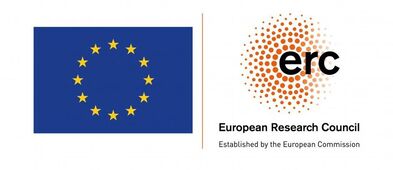ELECTIONS, VIOLENCE, AND PARTIES
Research project led by Ursula Daxecker (PI), funded by an ERC grant (€1,5 million), 2020-2025
Core project team: Noyonika Das (PhD student), Maureen Fubara (PhD student), Victor Alembik (PhD student), Neeraj Prasad (research fellow)
Countries around the world now hold elections, but are often unable or unwilling to guarantee free, fair and peaceful elections. Violence regularly precedes, accompanies, or succeeds elections, undermining democracy and people’s trust in electoral processes. While scholars and practitioners have made important progress in identifying the conditions that make elections violent, we do not have a good understanding of how violence plays out on the ground: Who engages in violence, who is targeted with violence, and when and where is violence most common?
To answer these questions, the Elections, Violence, and Parties (EVaP) project presents new theory and evidence on the nature, organization, and consequences of electoral violence. We attribute a central role to political parties as important actors linking politicians and citizens. The project examines the conditions under which party organizations themselves perpetrate violence, or when they jointly produce violence with other non-state actors such as ethnic leaders, religious organizations, gangs, or militias. We also explore how violence influences its targets — we ask if violence increases or decreases turnout, polarization, and ethnic attachment?
For project output and more, please visit our project website or read this interview.
Core project team: Noyonika Das (PhD student), Maureen Fubara (PhD student), Victor Alembik (PhD student), Neeraj Prasad (research fellow)
Countries around the world now hold elections, but are often unable or unwilling to guarantee free, fair and peaceful elections. Violence regularly precedes, accompanies, or succeeds elections, undermining democracy and people’s trust in electoral processes. While scholars and practitioners have made important progress in identifying the conditions that make elections violent, we do not have a good understanding of how violence plays out on the ground: Who engages in violence, who is targeted with violence, and when and where is violence most common?
To answer these questions, the Elections, Violence, and Parties (EVaP) project presents new theory and evidence on the nature, organization, and consequences of electoral violence. We attribute a central role to political parties as important actors linking politicians and citizens. The project examines the conditions under which party organizations themselves perpetrate violence, or when they jointly produce violence with other non-state actors such as ethnic leaders, religious organizations, gangs, or militias. We also explore how violence influences its targets — we ask if violence increases or decreases turnout, polarization, and ethnic attachment?
For project output and more, please visit our project website or read this interview.

